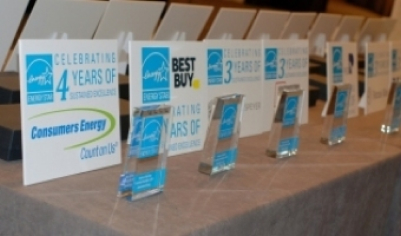


The program administrator community has come together to share information on the persistence of savings from behavior programs, three years after the first such study in 2013. Commonwealth Edison, Eversource, Duke, Nicor Gas, SMUD, and other CEE members contributed data on the savings persistence of their own programs along with factors that may influence persistence. When the first report was written, ideas about the persistence of changed behavior with regard to energy efficiency were still somewhat theoretical; now there is hard data to back it up. The new report, probably available for members in December, aims to:
CEE presented findings through a moderated panel on persistence at BECC 2016, featuring Bruce Ceniceros from SMUD, Vincent Gutierrez from Commonwealth Edison, Bill Mann from Duke Energy, and Steve Menges of National Grid.
The report shows that home energy reports are currently the behavioral program model most commonly tracked for persistence. Programs appear to experience an average decay rate of around 20 percent the first year, though this finding is quite preliminary given the variety of target audiences and geographic locations addressed through different HER rollouts. Questions continue to emerge about the effects of fuel type, roll out period versus decay rate, and effective mechanisms to increase persistence, suggesting areas for further research over the coming years. Program administrators continue to benefit through shared resources and research at CEE.
About CEE
CEE is an award-winning consortium of efficiency program administrators from the United States and Canada. Members work to unify program approaches across jurisdictions to increase the success of efficiency in markets. By joining forces at CEE, individual electric and gas efficiency programs are able to partner not only with each other, but also with other industries, trade associations, and government agencies. Working together, administrators leverage the effect of their ratepayer funding, exchange information on successful practices and, by doing so, achieve greater energy efficiency for the public good.